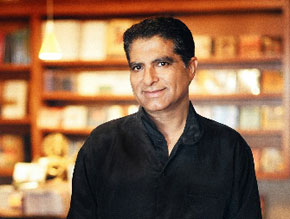Loneliness leads to increased levels of the stress hormone cortisol, altered expression in immune cells, poorer immune function, higher blood pressure and an increased level of depression.
It depresses your immune system, just like depression. Long periods of isolation can lead to feelings of helplessness, just like depression. It makes us wonder how many people are taking antidepressants when maybe all they need is a “secure attachment and a hug.”
John T, Cacioppo, is a Distinguished Professor at the University of Chicago, who is one of the founders of the new, interdisciplinary field of neuroscience which has used brain scans to examine the ways in which social isolation impacts our bodies and behaviour. Together with science writer William Patrick, he presents a fascinating assessment of loneliness and the need of social connection.
The authors lay out the roots of loneliness in 3 sections:
1. The person’s individual genetically based level of vulnerability to social disconnection
2. The person’s ability to regulate the emotions connected with feeling isolated.
3. The person’s expectation of others.
These factors combine to influence stress levels, immune response, and negative cycles of self-defeating behaviour. The authors claim that loneliness can be dealt with by understanding our fears and reframing how we think about social situations.
As a psychotherapist, I help my clients deal with the underlying emotional issues that cause loneliness.
Today we see people reaching out to others through: Social media networking: Facebook, Twitter, Meet-up groups, etc…
The studies report that a sense of isolation or rejection disrupts not only our abilities, will power and perseverance, but also key cellular processes deep within the human body.
Cacioppo and Patrick also demonstrate how loneliness creates a loop that reinforces social anxiety, fear and other negative feelings. According to the authors help can be given by rediscovering those positive, physiological sensations that come during the simplest moments of human contact. But that means overcoming the fear and reaching out.
Lonely people feel a hunger. The solution lies not in being fed, but in cooking for and enjoying a meal with others.
What matters is not the number of social interactions, but the degree to which these social interactions satisfy a person’s need for connection.
Just like losing weight is a matter of eating less and exercising , rather than cutting out carbohydrates and taking over the counter drugs, the same way you cannot come out of your shell by losing weight, getting a fashion makeover, or go on E-Harmony to meet Mr. or Ms. Right.
You are going to have to be nice to people, volunteer at a place of your liking, and stop the destructive thought patterns.









